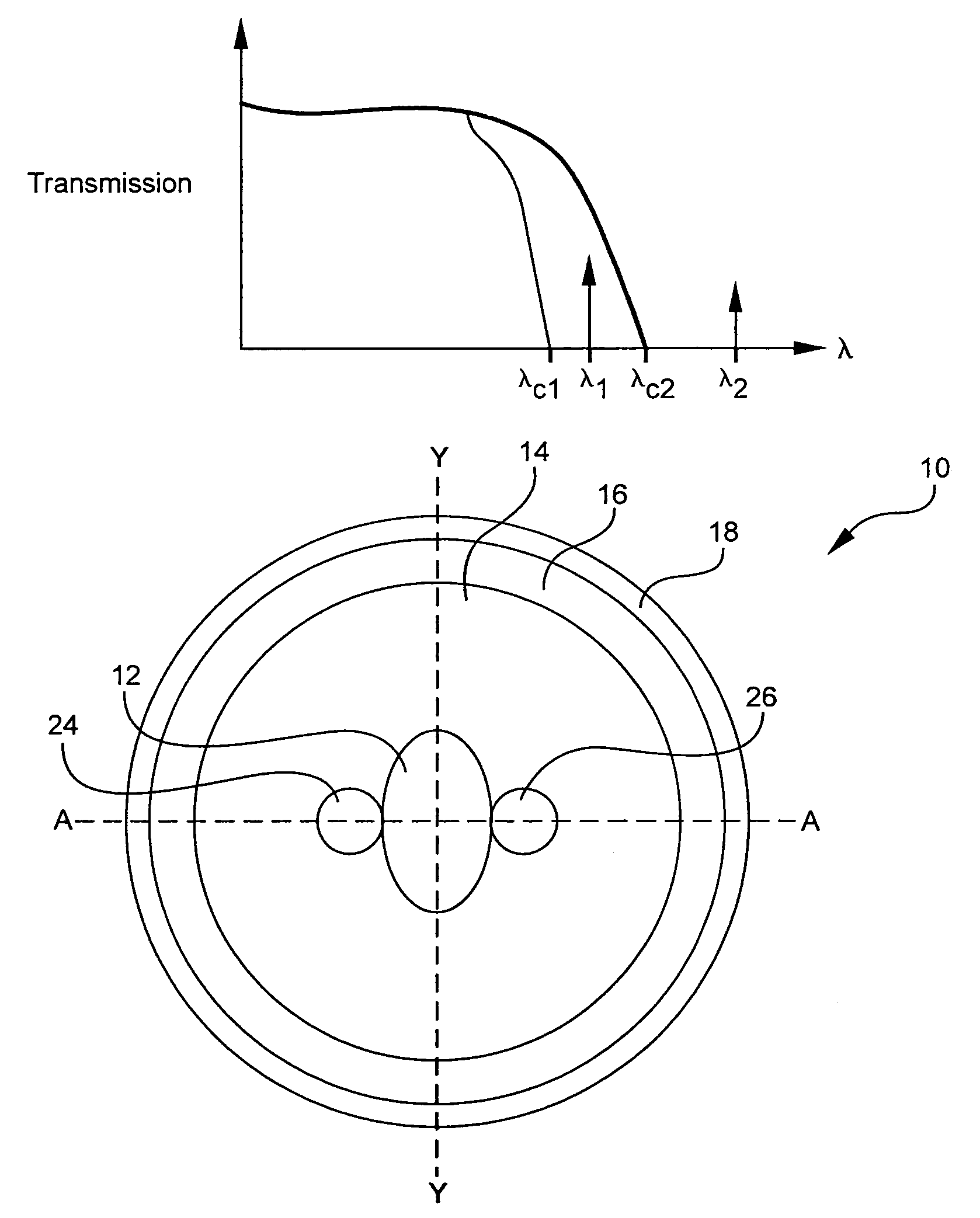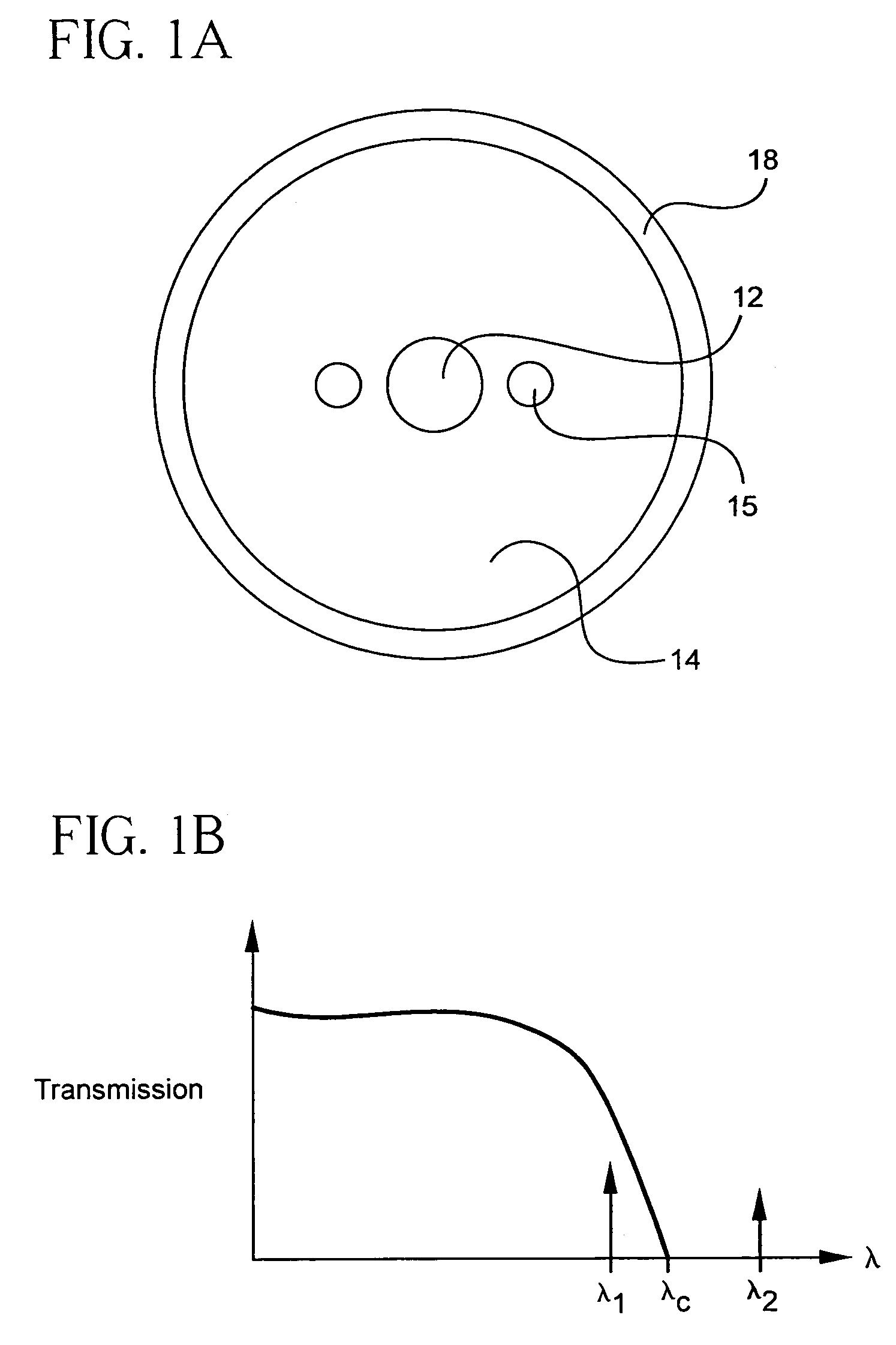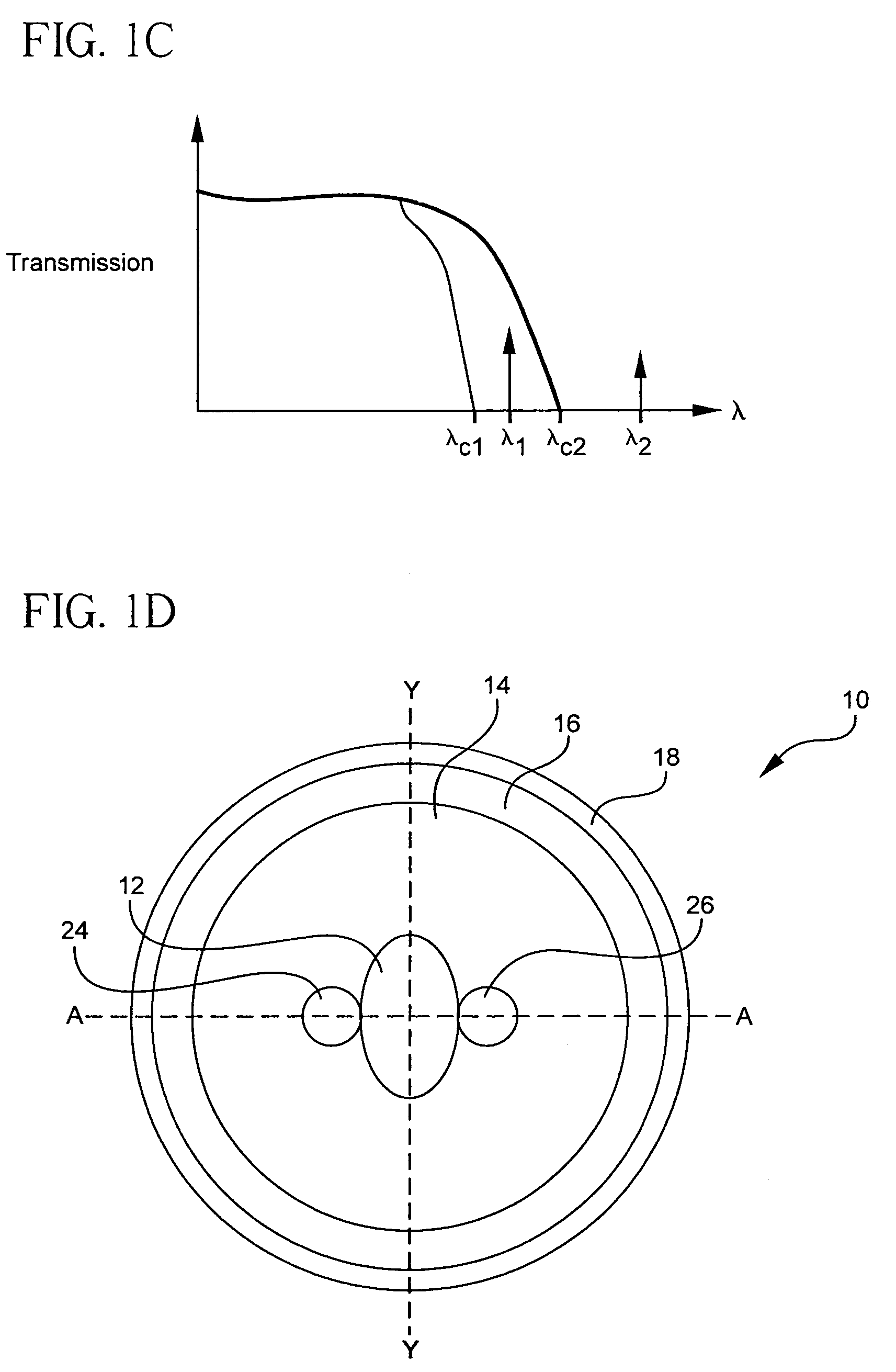Optical systems utilizing optical fibers transmitting high power signal and a method of operating such systems
a technology of optical fibers and optical fibers, applied in the field of optical systems, can solve the problems of difficult spectrally sharpening of dichroic filters, relatively low capability of fibers to handle high-power multi-mode optical sources, and introduce power loss at the 3-level wavelength, etc., to achieve easy and efficient splicing to other optical fibers, reduce power loss, and reduce the effect of power loss
- Summary
- Abstract
- Description
- Claims
- Application Information
AI Technical Summary
Benefits of technology
Problems solved by technology
Method used
Image
Examples
examples
The invention will be further clarified by the following examples.
[0065]FIGS. 3A and 3B illustrate schematically a relative refractive index profile of the optical fiber of shown in FIG. 1D. More specifically, FIGS. 3A and 3B depicts optical fiber's refractive index percent delta (relative to that of the pure silica) vs. the distance measured from the core center. FIG. 3A illustrates schematically a refractive index profile taken across the region that does not contain the air holes, for example, along the line Y-Y of the fiber depicted in FIG. 1D. FIG. 3B illustrates schematically a refractive index profile of the same fiber, but taken across the region that contains the air hole 24 (for example, along the line A-A of the fiber depicted in FIG. 1D).
[0066]FIG. 3C illustrates measured refractive index profile (percent delta, relative to that of the pure silica) of another exemplary optical fiber of the present invention along the Y-Y axis, measured from the core center. This optical ...
PUM
 Login to View More
Login to View More Abstract
Description
Claims
Application Information
 Login to View More
Login to View More - R&D
- Intellectual Property
- Life Sciences
- Materials
- Tech Scout
- Unparalleled Data Quality
- Higher Quality Content
- 60% Fewer Hallucinations
Browse by: Latest US Patents, China's latest patents, Technical Efficacy Thesaurus, Application Domain, Technology Topic, Popular Technical Reports.
© 2025 PatSnap. All rights reserved.Legal|Privacy policy|Modern Slavery Act Transparency Statement|Sitemap|About US| Contact US: help@patsnap.com



